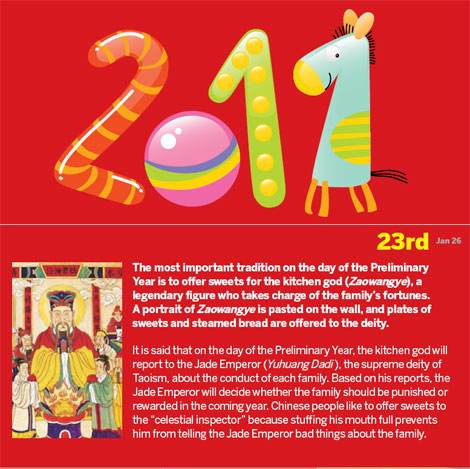
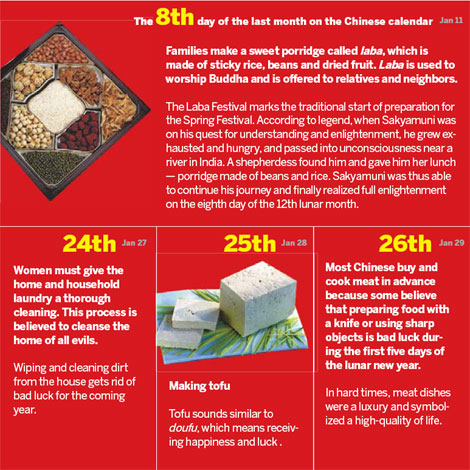

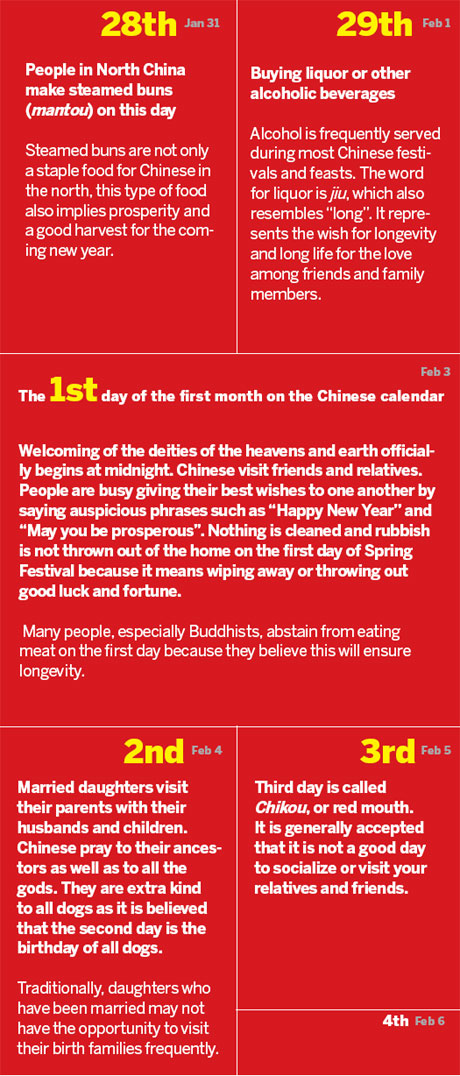
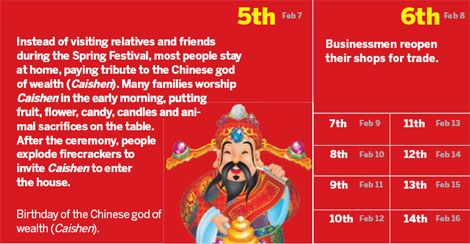
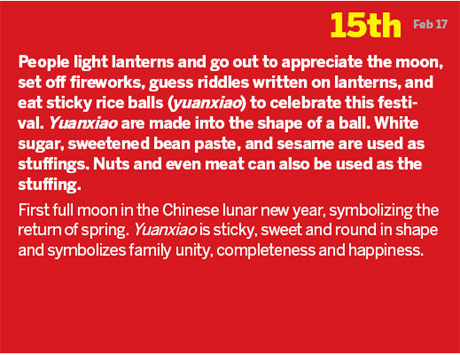
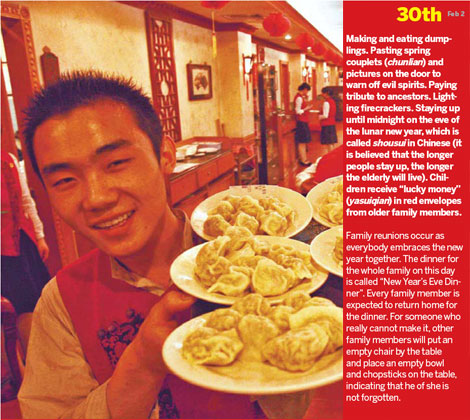
Spring Festival habits are changing with the times, but core values stay the same. He Dan reports.
Shen Xiaojun, 83, remembers a time when the Spring Festival celebrations continued for almost a month. These years, the festival has become a seven-day holiday for many people. "In the past, all the people in my village got busy with preparations for the Spring Festival at least a week before New Year's Eve and everyone was in the mood for celebration until the passing of the Lantern Festival (14 days after New Year's Day)," recalled Shen, who lives in Beijing. Many Spring Festival customs have vanished just like her old village, which was once located near Tsinghua University in northwestern part of Beijing, she said.
"None of my grandchildren know how to make mantou (steamed bun) or follow the tradition that they shouldn't use knives (when cooking) during the first five days of the Chinese lunar new year," she said in a sad tone.
For the generation born after the 1980s, the Internet has changed their lives including the way they celebrate the traditional Chinese lunar new year.
For Luo Wendan, a white-collar employee at a bank in Hangzhou , capital of East China's Zhejiang province, the Internet is her constant companion anytime anywhere.
Luo, 25, is planning to buy gifts for her parents online, chat with friends via QQ (a popular instant messenger service in China) on New Year's Eve and send e-cards to old classmates who are living overseas.
"I'm going to buy a massage chair from taobao.com for my parents, who both have back and neck problems," Luo said, adding that the price online is about half of the cost of massage chairs in real stores.
According to iResearch Consulting Group, an organization focused on China's e-commerce and customer behavior, about 56 percent of about 4,000 netizens it polled in February 2010 had purchased gifts for the Spring Festival online.
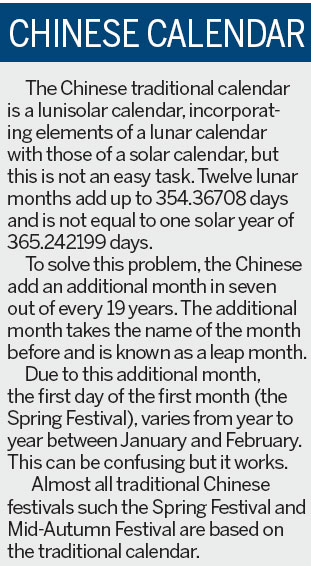
Clothes, health food and electronic products were the top three choices for online shoppers, the poll revealed.
The almighty Internet is providing almost everything people can imagine for the festival. Video games are creating a virtual world for people to light fireworks and make dumplings by simply clicking a computer mouse.
Despite the convenience, it appears the Internet cannot bring authentic Spring Festival joy to people.
And for some, the traditional Spring Festival has gradually lost its charm and has even become an "exhausting routine" for Luo.
"When I was little, I always couldn't wait for the Spring Festival. It could satisfy a lot of expectations for a child, such as new clothes, yummy food and playing around with cousins and peers," Luo recalled.
"Now, we don't need to wait till this festival for fancy clothes and food, so there is little to expect from it," she said.
However for most Chinese, the core values of the Spring Festival have never faded away, said Wang Zuoji, from the Beijing Folk Literature and Art Association.
"Paying tributes to gods and ancestors as well as making wishes for prosperity and happiness in the coming year are still what we do nowadays," Wang said.
"Spring Festival has deep cultural and historical roots.
"Although the ways of celebration change as time goes by, it remains the most important festival for Chinese to get together with family."
Some 700 million people, or nearly half the nation's population, are expected to travel within the country during the 40-day-long Spring Festival travel period, according to the Ministry of Transport.
Cheng Yingqi contributed to this story.
(China Daily 02/07/2011 page7)
|


